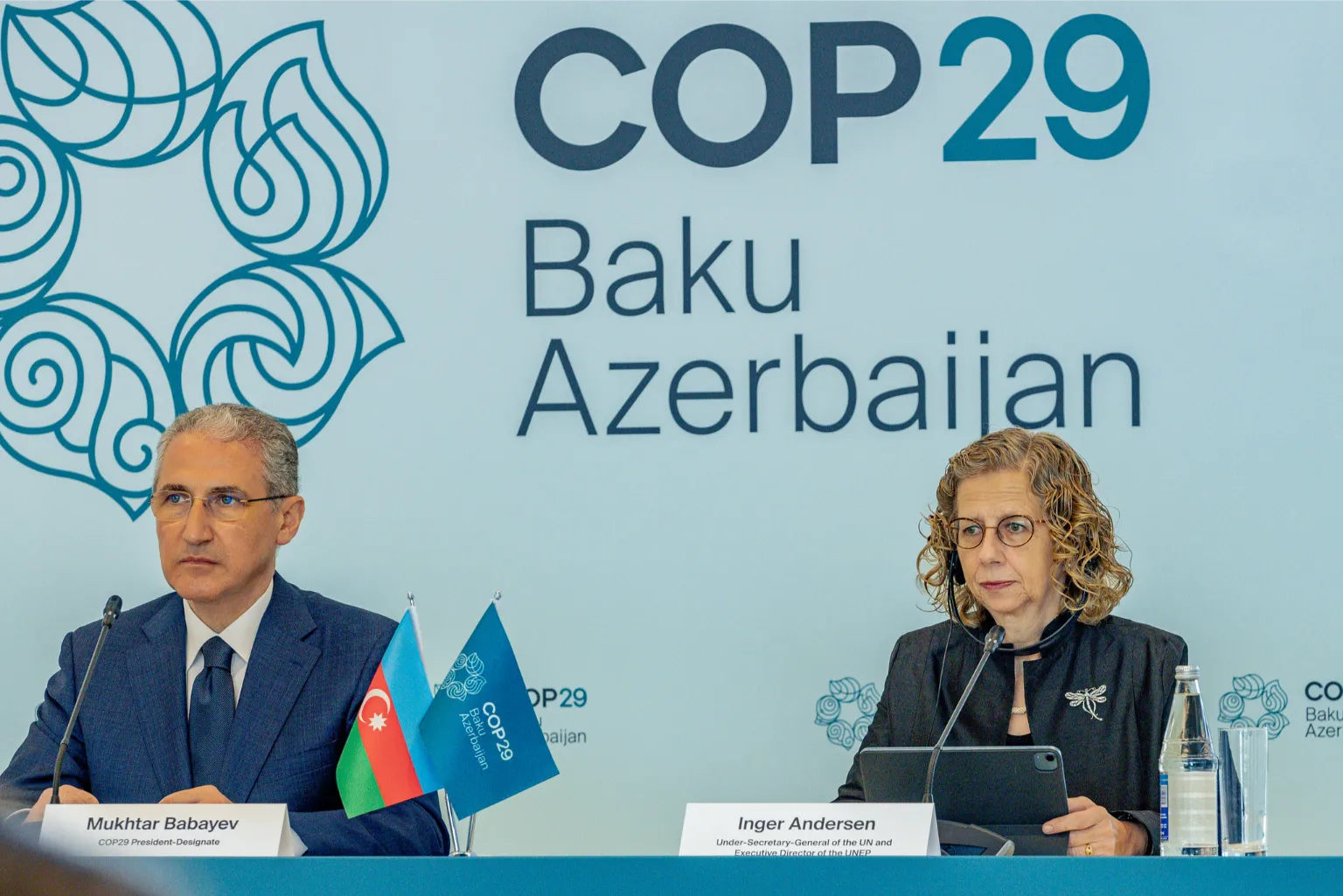Even as major climate concerns abound, several world leaders are opting out of attending COP29, the United Nations Climate Change Conference taking place in Baku, Azerbaijan. The decision reflects a mix of scheduling conflicts, logistical challenges, and political concerns, especially regarding Azerbaijan’s suitability as the host.
For some leaders, the timing of COP29 clashes with pressing domestic issues.
European Commission President Ursula von der Leyen, for example, is dealing with developments in Brussels, including the vetting of new Commission members. President Joe Biden will likely remain in the U.S. due to the post-election climate, and Brazilian President Luiz Inacio Lula da Silva is staying home after a recent head injury. Additionally, travel logistics to Azerbaijan and security concerns have deterred some leaders and delegates from attending the event.
Hosting the conference in Azerbaijan presents further complications. The country has faced significant criticism for its human rights practices, with restrictions on free speech and assembly that cast doubt on the safety and freedom of participants, including activists and journalists. Azerbaijan’s reliance on oil and gas also raises concerns about the country’s commitment to climate goals, as reports suggest plans to increase gas production over the coming decade. Critics argue that Azerbaijan may use the conference to engage in “greenwashing,” presenting an environmentally responsible image despite significant fossil fuel activities. Furthermore, the Azerbaijani government’s history of limiting civil society engagement risks undermining the inclusive dialogue essential for a successful climate summit.
COP29, like previous United Nations climate conferences, is centered around addressing the key issues of climate change. However, certain challenges and criticisms specific to COP29 highlight the complexities of achieving meaningful progress on climate action, particularly when it is hosted in Azerbaijan.
Here are the main issues linking COP29 and the broader climate change debate:
Commitment to Fossil Fuel Reduction
Issue: As the host country, Azerbaijan is a significant producer of oil and gas. This reliance on fossil fuels contrasts with the goals of COP29, which aims to reduce global carbon emissions and transition to clean energy.
Concern: Critics argue that Azerbaijan may use COP29 as a platform to promote itself as environmentally responsible while continuing its fossil fuel activities, a practice often referred to as “greenwashing.” This raises doubts about the effectiveness of COP29 in pushing real, actionable commitments to reduce fossil fuel dependency.
Human Rights and Civil Society Engagement
Issue: Azerbaijan has a history of limiting freedoms related to speech, assembly, and civil society activities. Climate action requires open, inclusive dialogue involving governments, NGOs, and activists, but Azerbaijan’s political climate complicates such participation.
Concern: Activists and civil society organizations may be restricted or face barriers to participation, which undermines the inclusive nature of COP and potentially limits transparent discussions on climate solutions. This could prevent the voices of grassroots and vulnerable communities, often most affected by climate change, from being adequately represented.
Representation and Global Cooperation
Issue: The attendance of major world leaders and policymakers is critical to signal commitment and ensure that COP decisions are backed by political will. However, several prominent leaders are choosing not to attend COP29 due to logistical and political concerns related to Azerbaijan.
Concern: Reduced high-level attendance risks weakening COP29’s global influence and undermines the conference’s effectiveness. Without key leaders present to make binding commitments, the outcomes of COP29 may lack the weight needed to drive substantial climate action.
Accountability for Climate Finance and Adaptation Efforts
Issue: Developed countries are expected to support vulnerable nations in financing adaptation to climate impacts and transitioning to cleaner energy sources. However, Azerbaijan’s approach to transparency and governance raises concerns about ensuring accountability in financial pledges made during COP29.
Concern: If the financial mechanisms discussed at COP29 lack transparency or credibility, it could erode trust in the international climate finance system. Developing countries, which are often disproportionately affected by climate change, may find it harder to secure the necessary support for adaptation and mitigation.
Focus on Tangible Climate Actions vs. Diplomatic Gains
Issue: COP conferences often feature ambitious climate targets and promises. Azerbaijan may see COP29 as an opportunity to improve its international standing, which could shift focus from actionable climate commitments to diplomatic gains.
Concern: Emphasis on diplomacy rather than concrete climate action could dilute the outcomes of COP29, making it a less effective forum for tackling the urgent demands of the climate crisis.
Public Perception and Credibility of COP Process
Issue: When COP is hosted by a nation with significant environmental and human rights criticisms, it can lead to public skepticism about the integrity of the conference.
Concern: Public trust in the COP process could weaken if it is seen as more of a symbolic gathering than a venue for substantial progress. This affects global momentum for climate action, as public engagement and support are crucial for implementing climate policies at national and local levels.
COP29 thus faces a difficult balancing act: achieving real progress on critical climate issues while navigating the political, economic, and ethical complexities tied to its host nation. The success of COP29 will depend on its ability to overcome these challenges and demonstrate meaningful action against climate change.
